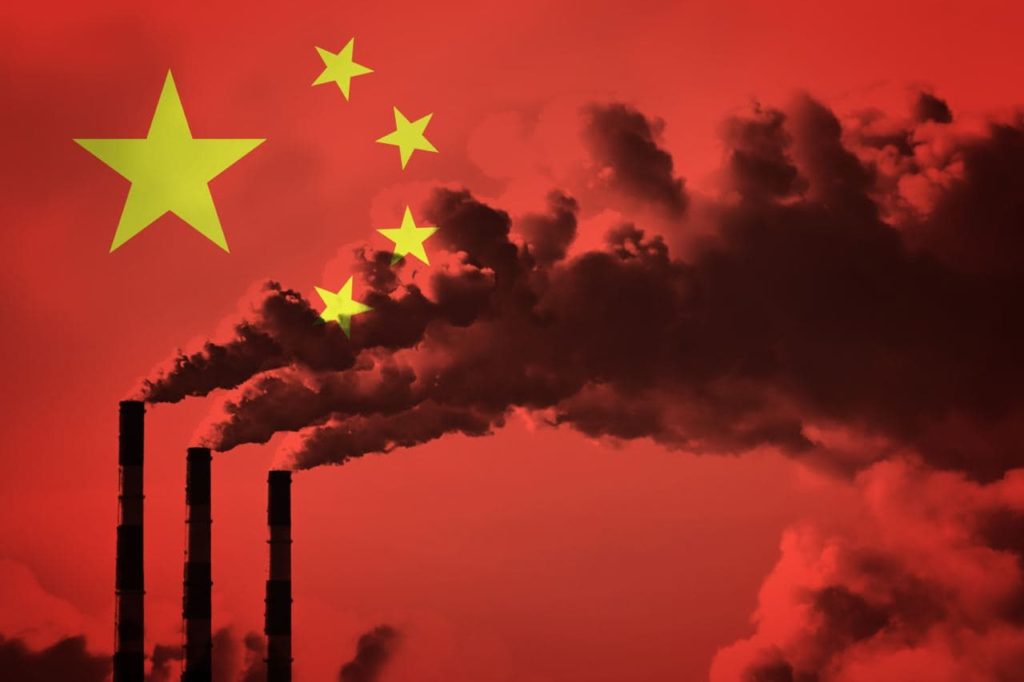News Asia
China Says Phasing Out Fossil Fuels in Completely Unrealistic

China’s top climate official said Thursday that the complete elimination of fossil fuels is unrealistic and that they must continue to play an important role in maintaining global energy security.
China is the world’s largest consumer of fossil fuels, including coal and oil, and its special climate envoy, Xie Zhenhua, was replying to ambassadors’ views at a round-table in Beijing on Thursday ahead of the COP28 climate conference in Dubai in November.
Reuters got a copy of Xie Zhenhua’s speech text as well as a video recording of the meeting.
Countries are under pressure to make more ambitious pledges to combat global warming after a United Nations-led global “stocktake” revealed that an additional 20 gigatonnes of carbon dioxide reductions would be required this decade alone to keep temperatures from rising below the critical 1.5 degrees Celsius above pre-industrial levels.
The stocktake will be at the forefront of discussions at the COP28 climate summit, with campaigners hoping that it will generate the political will to establish explicit objectives to phase out coal and oil consumption.
China Favors carbon capture and storage
Xie, on the other hand, believes that due to the intermittent nature of renewable energy and the immaturity of important technologies such as energy storage, the world must continue to rely on fossil fuels to ensure economic growth.
“It is unrealistic to completely phase out fossil fuel energy,” said Xie, who will represent China at the UN Climate Change Conference this year.
China spearheaded efforts to amend the language of the final accord from “phasing out” to “phasing down” fossil fuels at the 2021 climate negotiations in Glasgow. China also favours expanding the use of abatement technology such as carbon capture and storage.
While abolishing the use of fossil fuels will not be on the table at COP28, Xie stated that China was open to adopting a global renewable energy target as long as it took into account the diverse economic realities of different countries.
He also welcomed commitments made to him by his US counterpart John Kerry that a US$100 billion yearly fund to assist developing nations in adapting to climate change will be made available shortly, but said that it was “only a drop in the bucket.”
EU Carbon Levies on Products from China
China and the United States, the world’s two largest greenhouse gas polluters, began high-level climate talks in July after a break caused by US Representative Nancy Pelosi’s travel to Taiwan, which China claims.
China has rejected US efforts to approach climate change as a diplomatic “oasis” separate from the two countries’ broader geopolitical problems, with US trade restrictions on Chinese solar panels being a sore subject.
Xie warned that protectionism might raise the cost of solar panels by 20-25%, delaying the energy transition, and urged countries not to “politicice” cooperation in new energy.
He also restated China’s objection to the European Union’s (EU) Carbon Border Adjustment Mechanism, which would levy carbon duties on Chinese and other imports.
China has approved more coal power facilities last year than at any other time in the previous seven years. It’s roughly the equal of two new coal power plants per week.
New coal power licences
According to a survey by energy data organisations Global Energy Monitor and the Centre for Research on Energy and Clean Air, the government doubled the number of new coal power licences in 2022 compared to 2021.
The increased permitting of new coal plants appears to be a response to the prolonged drought and last summer’s epic hot wave, which scientists say was made more likely by climate change.
The hot wave increased demand for air conditioning, causing grid issues. Heat and drought caused rivers to dry up, particularly parts of the Yangtze, resulting in less hydropower.
Due to the war in Ukraine, high prices for liquefied natural gas compelled at least one province to resort to coal.
According to the report, China leads the globe in the construction of new solar and wind power plants, while also developing more coal plants than any other country.
Government and industry argue that coal facilities will be utilised as backup support for renewables and during times of high electricity demand, such as heat waves.
China is the world’s largest emitter of fossil fuels, and it has vowed to reduce its emissions by 2030. However, there are concerns about how high that peak may reach and how quickly it will arrive.



























